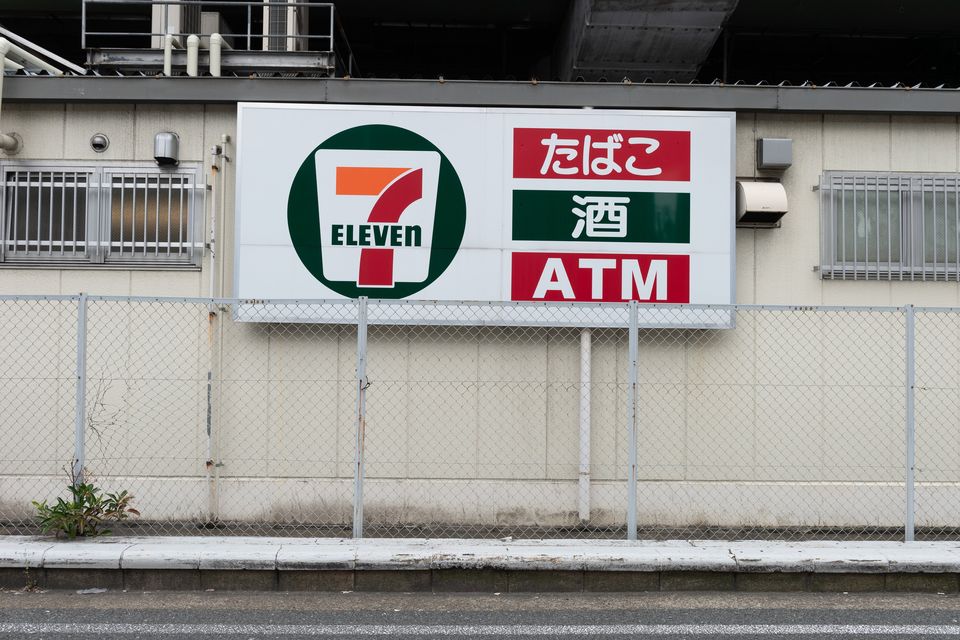Business
Japan’s 7-Eleven Trials Robots to Combat Worker Shortage

Japan’s largest convenience store chain, 7-Eleven, has initiated trials of robot workers at a store in Tokyo. This move aims to tackle a significant shortage of workers that has affected various sectors across the country. The autonomous machines are designed to perform basic tasks such as stacking shelves and cleaning windows, which could help streamline operations amid a declining labor pool.
The trials mark a pivotal shift in how 7-Eleven addresses staffing challenges. Japan has been grappling with demographic changes, including an aging population and a declining birthrate, leading to a notable decrease in the available workforce. According to recent government statistics, the country’s labor force is projected to shrink by approximately 4 million people by 2025.
These robots, developed to assist rather than replace human employees, represent an innovative solution to enhance efficiency in stores. The Tokyo location selected for the pilot program will be the first to implement this technology, and if successful, it could pave the way for wider adoption across other stores in Japan and potentially beyond.
Incorporating robotic technology into everyday operations not only helps in alleviating labor shortages but also aligns with global trends toward automation in retail. As consumer preferences evolve, the ability to maintain service standards with fewer human resources becomes increasingly crucial.
The 7-Eleven initiative reflects a broader movement within Japan’s retail industry to embrace technological advancements. With many businesses looking to maintain competitiveness while facing labor constraints, the introduction of robots could be a key factor in sustaining operational viability.
While the trials are in the early stages, the implications of such a shift are significant. If successful, this could lead to a reimagining of roles within the convenience store sector, providing opportunities for employees to focus on customer service and complex tasks that require human judgment.
As Japan continues to confront its labor challenges, the actions taken by 7-Eleven could set a precedent for other companies facing similar issues. The integration of robots into the workforce may not only help fill immediate gaps but also contribute to long-term strategies for operational sustainability in a rapidly changing economic landscape.
This trial phase will be closely monitored, and the results may influence decisions made by other major retailers in Japan and in other countries facing workforce shortages. As the situation develops, it will be interesting to see how technology can transform the retail landscape and what it means for the future of work in Japan.
-

 Entertainment1 month ago
Entertainment1 month agoAimee Osbourne Joins Family for Emotional Tribute to Ozzy
-

 Politics2 months ago
Politics2 months agoDanny Healy-Rae Considers Complaint After Altercation with Garda
-

 Top Stories4 weeks ago
Top Stories4 weeks agoIreland Enjoys Summer Heat as Hurricane Erin Approaches Atlantic
-

 World2 months ago
World2 months agoHawaii Commemorates 80 Years Since Hiroshima Bombing with Ceremony
-

 Top Stories2 months ago
Top Stories2 months agoFianna Fáil TDs Urgently Consider Maire Geoghegan-Quinn for Presidency
-

 World2 months ago
World2 months agoGaza Aid Distribution Tragedy: 20 Killed Amid Ongoing Violence
-

 World2 months ago
World2 months agoCouple Convicted of Murdering Two-Year-Old Grandson in Wales
-

 World2 months ago
World2 months agoAristocrat Constance Marten and Partner Convicted of Infant Murder
-

 Top Stories2 months ago
Top Stories2 months agoClashes Erupt Between Far-Right Groups and Migrants in Spain
-

 Top Stories2 months ago
Top Stories2 months agoHistoric Dalkey Pub The Queens Reopens Under New Management
-

 World2 months ago
World2 months agoTrump Defends FBI Deputy Director Amid Epstein Files Controversy
-

 Politics2 months ago
Politics2 months agoTragic Crowd Surge at Gaza Aid Center Claims 20 Lives









